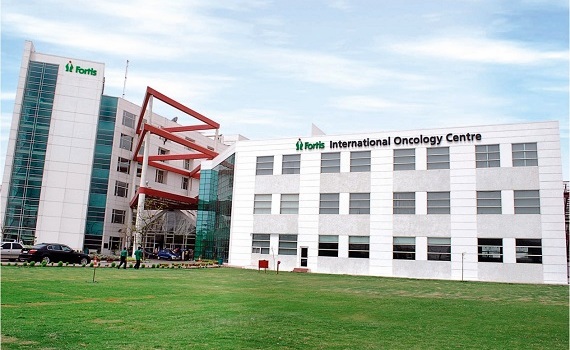Orchidectomy Treatment in India
treatment
starting from
Introduction
In the realm of men's health, certain conditions demand attention and understanding. Orchidectomy, also known as orchiectomy or testicle removal, is a topic that deserves careful exploration. This unique blog aims to shed light on the various aspects of orchidectomy, including the procedure, its cost in India, symptoms, causes, diagnosis, and available treatments. As we embark on this enlightening journey, let's delve into the intricacies of this condition, demystifying its implications for male reproductive health.
Understanding Orchidectomy
Orchidectomy refers to the surgical removal of one or both testicles, which are the male reproductive organs responsible for producing sperm and testosterone. This procedure is employed for various medical reasons, such as the treatment of testicular cancer, advanced prostate cancer, and other conditions affecting the male reproductive system. While the concept of orchidectomy might seem daunting, it is essential to remember that advances in medical technology have made the procedure safer and less invasive over time.
Procedure Cost in India
India has emerged as a hub for medical tourism, providing world-class healthcare services at a fraction of the cost compared to many other countries. When it comes to orchidectomy, the procedure cost in India can vary depending on factors such as the type of hospital, the experience of the surgeon, the complexity of the case, and the location of the hospital.
On average, the cost of a unilateral orchidectomy (one testicle removal) in India ranges from ?50,000 to ?1,50,000, while a bilateral orchidectomy (both testicles removal) may cost between ?1,00,000 to ?2,50,000. It's important to note that these figures are indicative and can differ based on individual circumstances. Patients considering this procedure are advised to consult with medical professionals and hospitals to obtain precise cost estimates.
Symptoms and Causes of Orchidectomy
Orchidectomy may not manifest specific symptoms in itself, as it is a planned surgical intervention to treat an underlying condition. However, the conditions leading to the need for this procedure can present with distinctive signs. Here are a portion of the normal side effects and causes:
1. Testicular Cancer: One of the primary reasons for orchidectomy is the presence of testicular cancer. Symptoms of testicular cancer may include a lump or enlargement in the testicle, pain or discomfort in the testicular region, a feeling of heaviness, and sometimes back pain. Early conclusion and treatment are pivotal for improved results.
2. Advanced Prostate Cancer: In some cases of advanced prostate cancer, hormone therapy may be necessary. Orchidectomy is performed to reduce the production of testosterone, as prostate cancer growth is often stimulated by this hormone.
3. Testicular Torsion: Testicular torsion is a medical emergency that occurs when the spermatic cord twists, cutting off the blood supply to the testicle. Symptoms include sudden and severe testicular pain, swelling, and redness. Immediate medical attention is required to save the affected testicle.
Diagnosis and Treatment Options
Diagnosis of Underlying Conditions: For conditions like testicular cancer and testicular torsion, a comprehensive diagnostic process is initiated. This process may include a physical examination, imaging tests like ultrasound, blood tests (tumor markers for cancer detection), and possibly a biopsy to confirm the presence of cancer cells.
- Orchidectomy as a Treatment: Once a diagnosis is confirmed, and if orchidectomy is deemed necessary, the procedure is scheduled. Orchidectomy can be performed through various techniques, including inguinal or scrotal approaches, with the latter being less invasive and preferred for some cases.
- Alternatives to Orchidectomy: In certain instances, especially with testicular cancer, other treatment options like radiation therapy, chemotherapy, and surveillance may be considered based on the stage and type of cancer, as well as the patient's overall health.
- Post-Orchidectomy Care: Recovery from an orchidectomy typically involves rest and pain management. Patients may experience swelling and discomfort, but this usually improves over time. For cancer patients, further treatment and follow-ups will be scheduled to ensure the best possible outcome.
Advancements in Prosthetic Testicles
For patients concerned about the physical appearance after orchidectomy, advancements in medical technology have paved the way for prosthetic testicles. These silicone implants are designed to replicate the size, shape, and texture of a natural testicle, providing patients with a more balanced and aesthetically pleasing appearance.
The decision to opt for prosthetic testicles is entirely up to the patient and their personal preferences. Some individuals find comfort and confidence in having a symmetrical appearance, while others may choose not to have the implant.
Preventive Measures and Early Detection
While some causes of orchidectomy, such as testicular cancer, may not be entirely preventable, there are measures individuals can take to promote early detection and improve their overall reproductive health:
- Regular Testicular Self-Examination: Men should be encouraged to perform regular testicular self-examinations to detect any abnormalities or changes in the testicles. Early detection of lumps or swelling can significantly improve treatment outcomes.
- Routine Medical Check-ups: Regular visits to a healthcare professional for routine check-ups can help identify potential health issues early on, allowing for timely intervention.
- Healthy Lifestyle Choices: Adopting a healthy lifestyle, including a balanced diet, regular exercise, and avoiding tobacco and excessive alcohol consumption, can contribute to overall well-being.
Fostering Awareness and Breaking Stigmas
As a society, it is essential to foster awareness around men's reproductive health and create an environment where men feel comfortable discussing their concerns openly. Breaking stigmas surrounding male health issues can encourage timely medical attention and better outcomes. Education in schools, workplaces, and communities should include discussions about testicular health, self-examination techniques, and the importance of seeking medical help promptly. By normalizing these conversations, we can empower men to take charge of their reproductive health.
Conclusion
Orchidectomy, though an important procedure for treating various male reproductive health conditions, is not without its complexities. Understanding the symptoms, causes, diagnosis, and treatment options is essential for patients and their families. India's cost-effective healthcare system, coupled with skilled medical professionals, makes the country a viable destination for those seeking quality treatment.
As we conclude our exploration of orchidectomy, let us acknowledge the importance of early detection and open dialogue regarding men's health issues. Remember, seeking medical attention for any concerning symptoms is the first step towards maintaining a healthy and fulfilling life.
How It Works
Need help in organizing medical travel to India?











